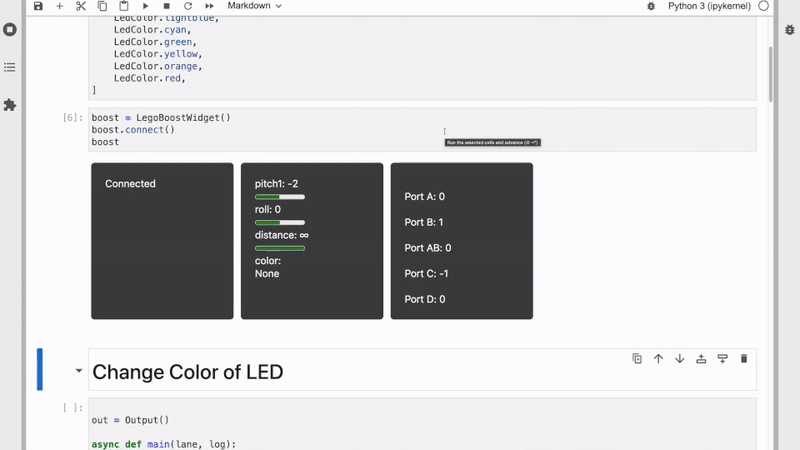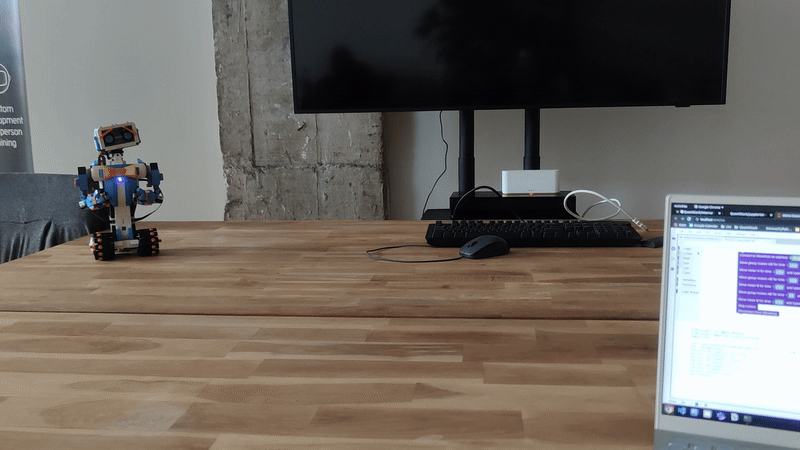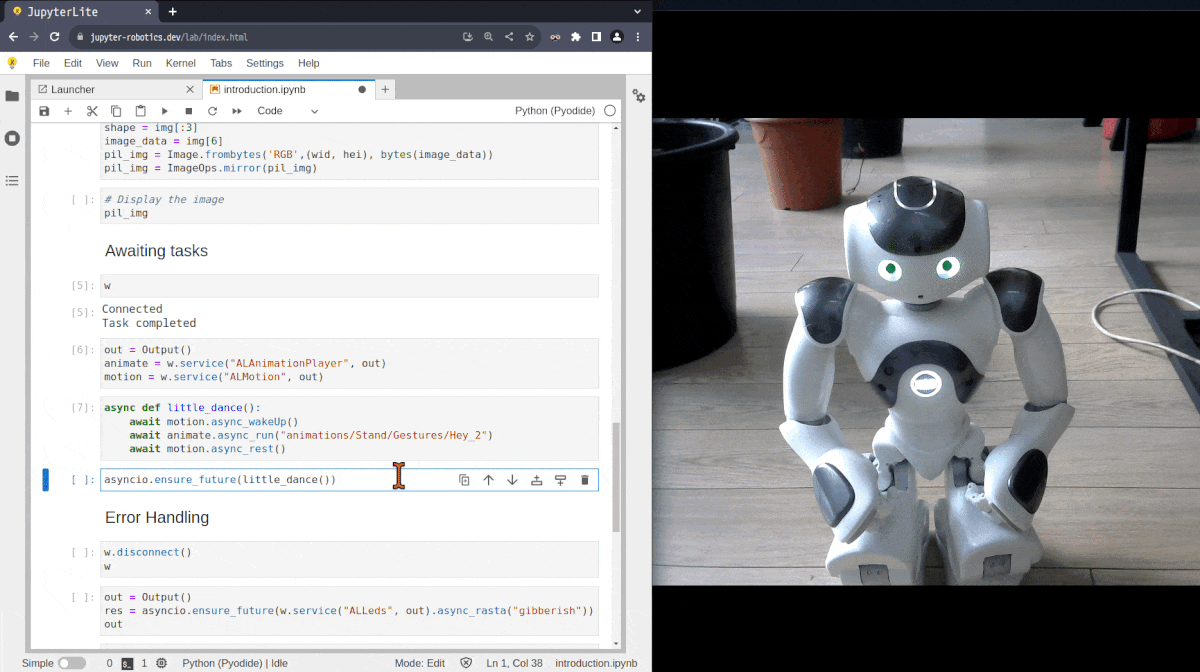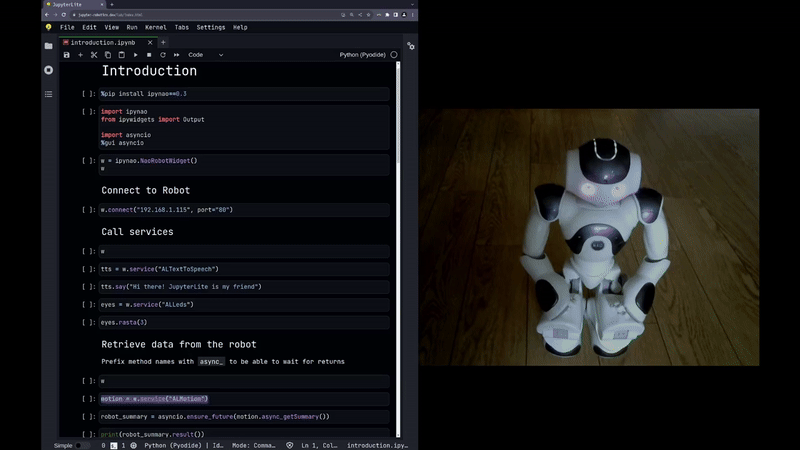The Evolution of Jupyter and its Applications in Robotics
Who are we?

Matthias Meschede
Chief Operating Officer
Contributes to the data ecosystem in Python/Rust/Haskell/Nix

Isabel Paredes
Scientific Software Developer
Contributes to Jupyter/Emscripten-Forge/Robotics ecosystem
QuantStack
- Founded in 2016 in Paris
- Principal contributor to Jupyter, Apache Arrow, Mamba/Conda
- Multi-stakeholder projects with millions of users
- Open source development for clients
- Other topics: C++, scientific computing, WebAssembly, interactive applications
- Animation of PyData community

Empowering scientists and developers worldwide with cutting-edge tools
From Notebooks to in-Browser UIs
Notebooks: Programming for Everyone
-
Accessible
No installation required - run Python, R, Julia, and 40+ languages directly in your web browser.
-
Literate programming
Combine code, rich text, equations, and visualizations in a single document that tells a story.
-
Interactive
Execute code cells individually, experiment iteratively, and see results immediately.
-
Visual
Create stunning plots, charts, and interactive widgets that bring data to life.
-
Global impact
Used by millions worldwide - from students learning to scientists discovering breakthrough insights.
Two Important Axes of Evolution
Jupyter has become a comprehensive stack for building advanced professional applications.
Jupyter can entirely run client side, greatly simplifying deployments.
Jupyter as Application Framework
-
Integrates with many ("almost all") language ecosystems
Very generic and standardized interface to language runtimes. Kernels are available for Python, R, Julia, JavaScript, Rust, C++, and many more.
-
Browser-first
The browser is probably the worlds most widely used human/machine interface. Disadvantages (native execution, GPU) are gradually disappearing.
-
Generic UI library
Modern Jupyter is built on top of a generic UI library that provides tabs, commands, menus, and everything that you would expect from an IDE-like application.
-
Large UI ecosystem
Tons of visualizations, extensions available
-
Huge community
Active community. Standard that won't go away soon.
Jupyter with WebAssembly (JupyterLite)
-
Serverless execution
Faster, easier to deploy, scaling infinitely, cheaper.
-
Enterprise deployments
No (complex) server, no maintenance, no scaling issues. No installation. Built-in security through browser sandboxing.
-
W3C Standard
WebAssembly is a W3C standard, stable and supported by all major browsers. It is not going away any time soon.
-
Most languages can compile to WebAssembly now but not all
Python, Rust, Fortran, R, C++, ...
-
Libraries start to become available but not all are there yet
See QuantStack's Emscripten-Forge for package management in the browser. Some libraries are not yet available and difficult to port.
-
Hardware not as easily accessible
Bluetooth, GPU and other hardware need to be accessed through specific interfaces (Web Bluetooth, WebGPU, etc.).
-
Extra hoops because of sandboxing
Accessing the file system, network, or other resources may require additional steps.
-
Limitation to user hardware
Server-based Jupyter can go beyond the user hardware, e.g. GPU, TPU, or HPC clusters.
JupyterLite: a Gateway to Serverless Interfaces
JupyterGIS
JupyterCAD
Jupyter in Robotics
Robotics at QuantStack
- Make robotics accessible to everyone
- Leverage Jupyter's interactive capabilities
- Integrate with various robotics platforms
- Foster community-driven development

Blockly
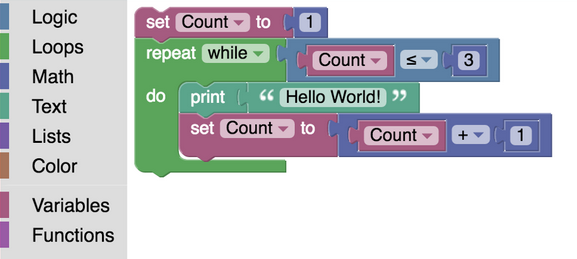
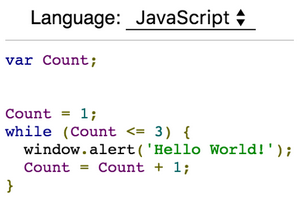
- Visual programming language
- Drag-and-drop interface
- Produces code in desired language
JupyterLab-Blockly
github.com/QuantStack/jupyterlab-blockly
Author: Denisa Checiu
Nyrio One
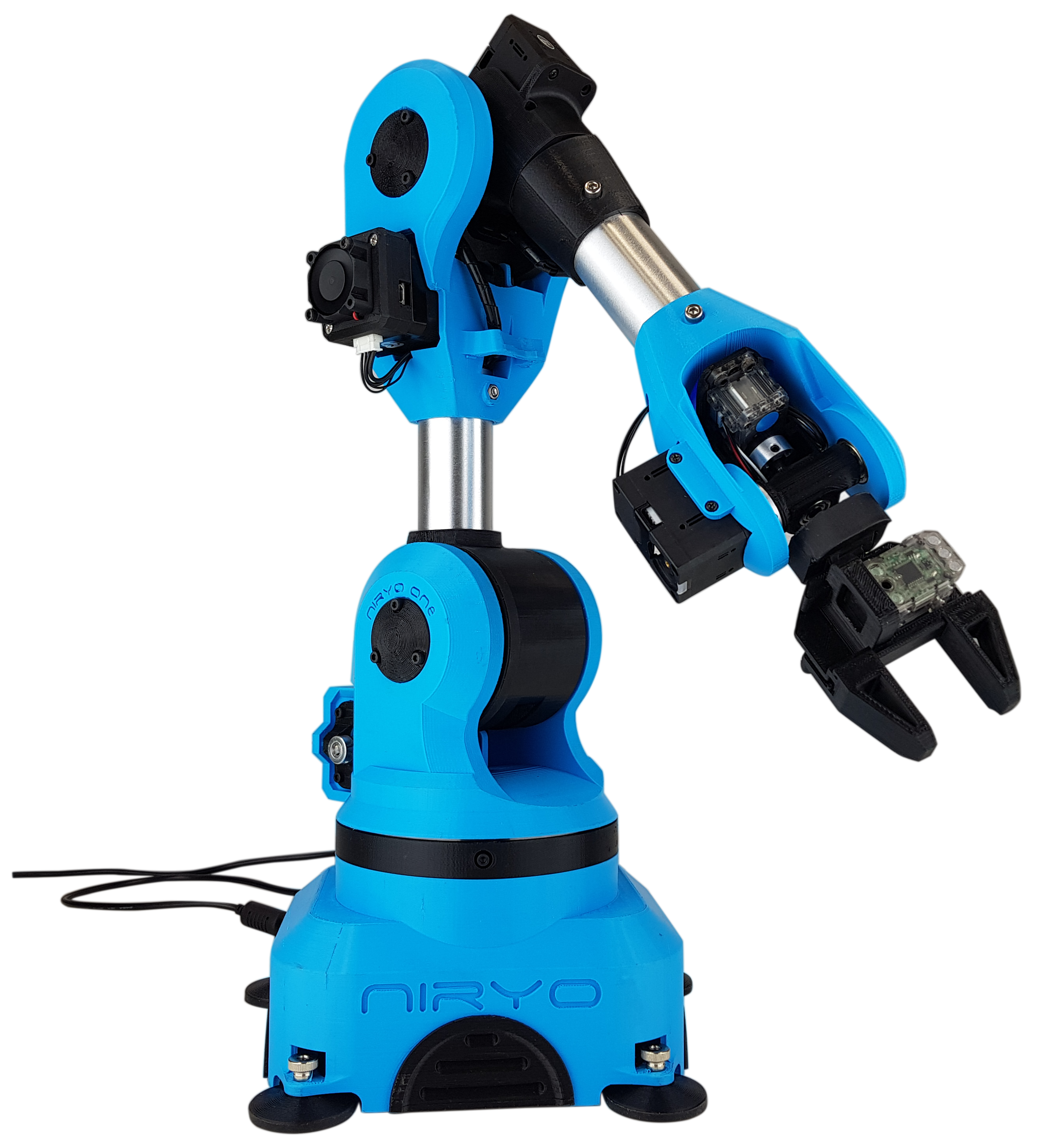
- 6-axis robot arm
- 3D printed
- Powered by Arduino, Raspberry Pi, and ROS
- One of the first accessible robotic arms
JupyterLab-Nyrio-One
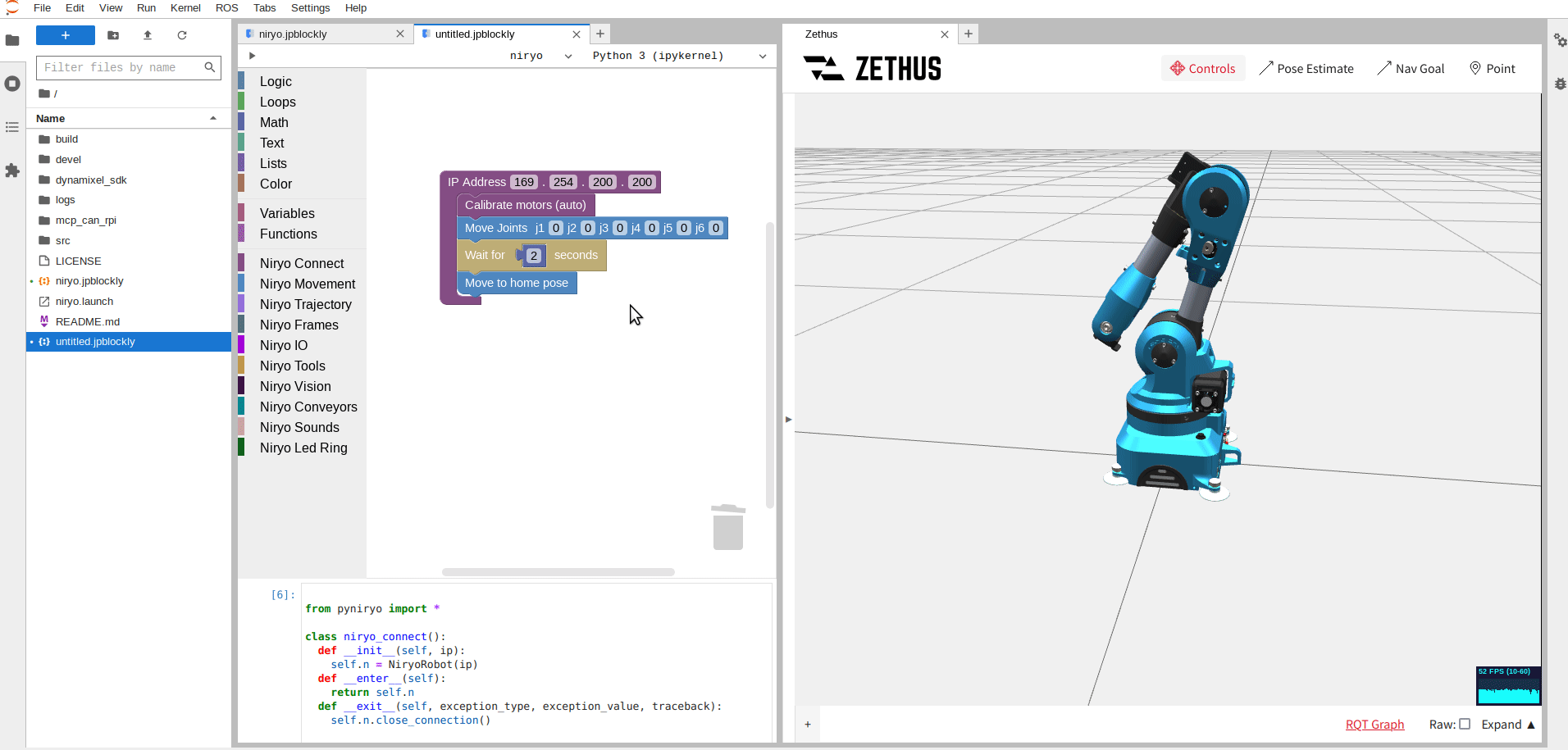
github.com/jupyter-robotics/jupyterlab-nyrio-one
Author: Denisa Checiu
LEGO Boost
- Robotics kit with 5 models
- Designed for educational purposes
- Includes MoveHub, motors, color sensor, and LEDs
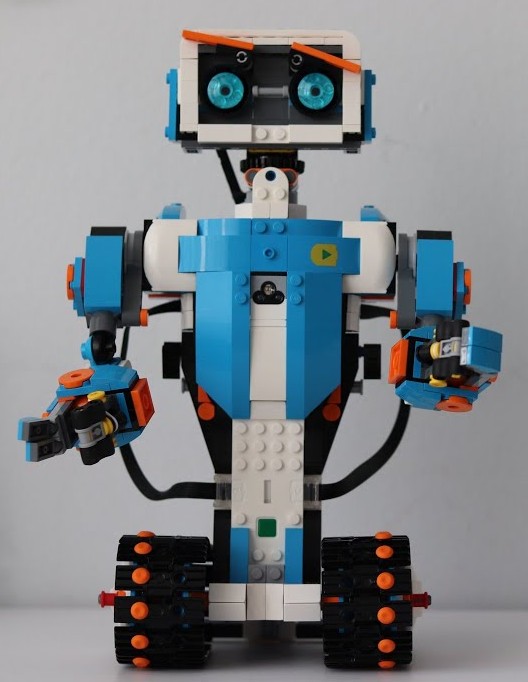
Vernie the Robot
ipylgbst
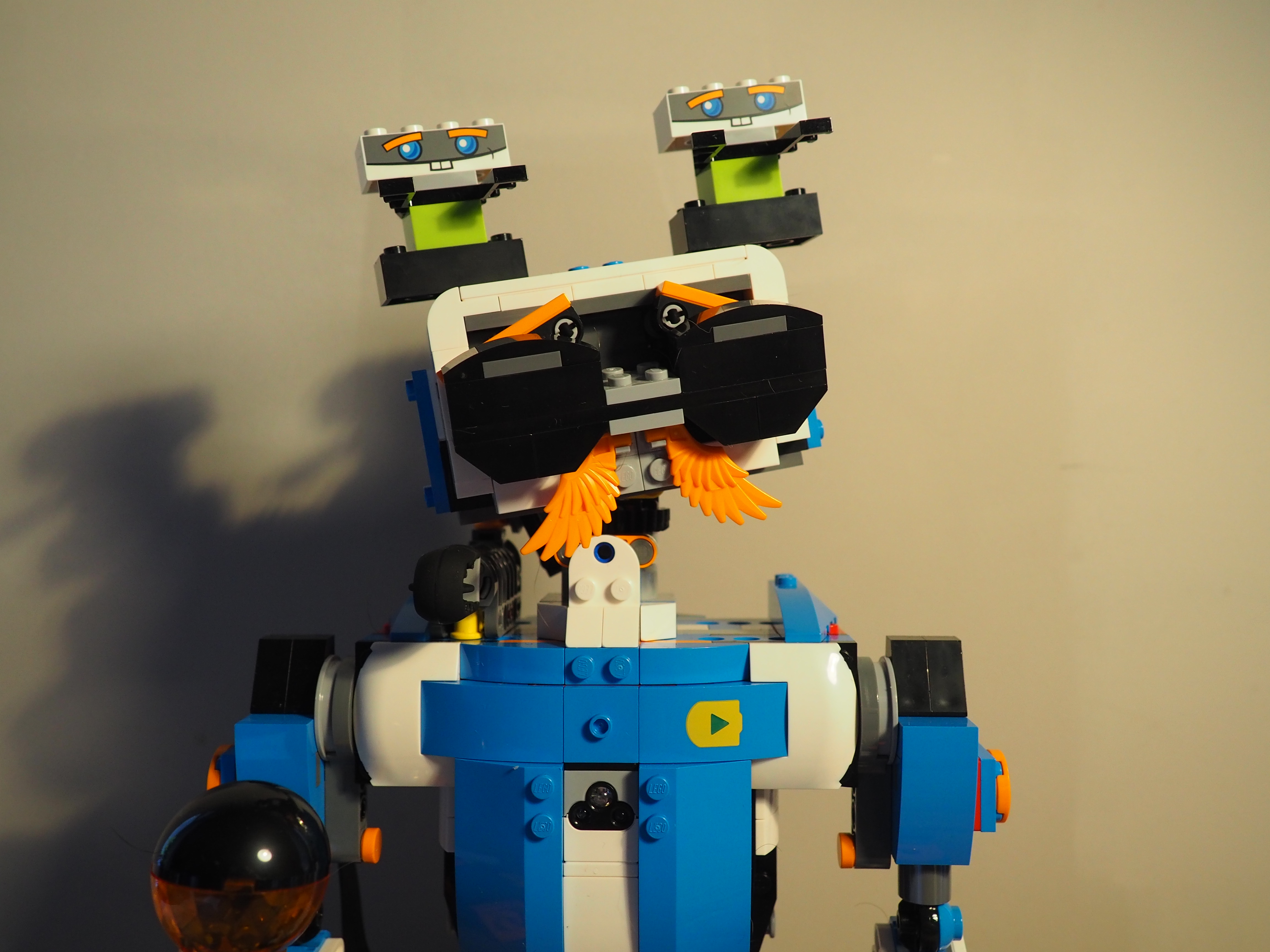
- Interactive Python LEGO Boost
- Widget library
- Depends on lego-boost-browser for Web Bluetooth communication
ipylgbst
JupyterLab-LEGO-Boost
Nao
- Humanoid robot
- Developed by United Robotics Group (URG)
- Used in education and research
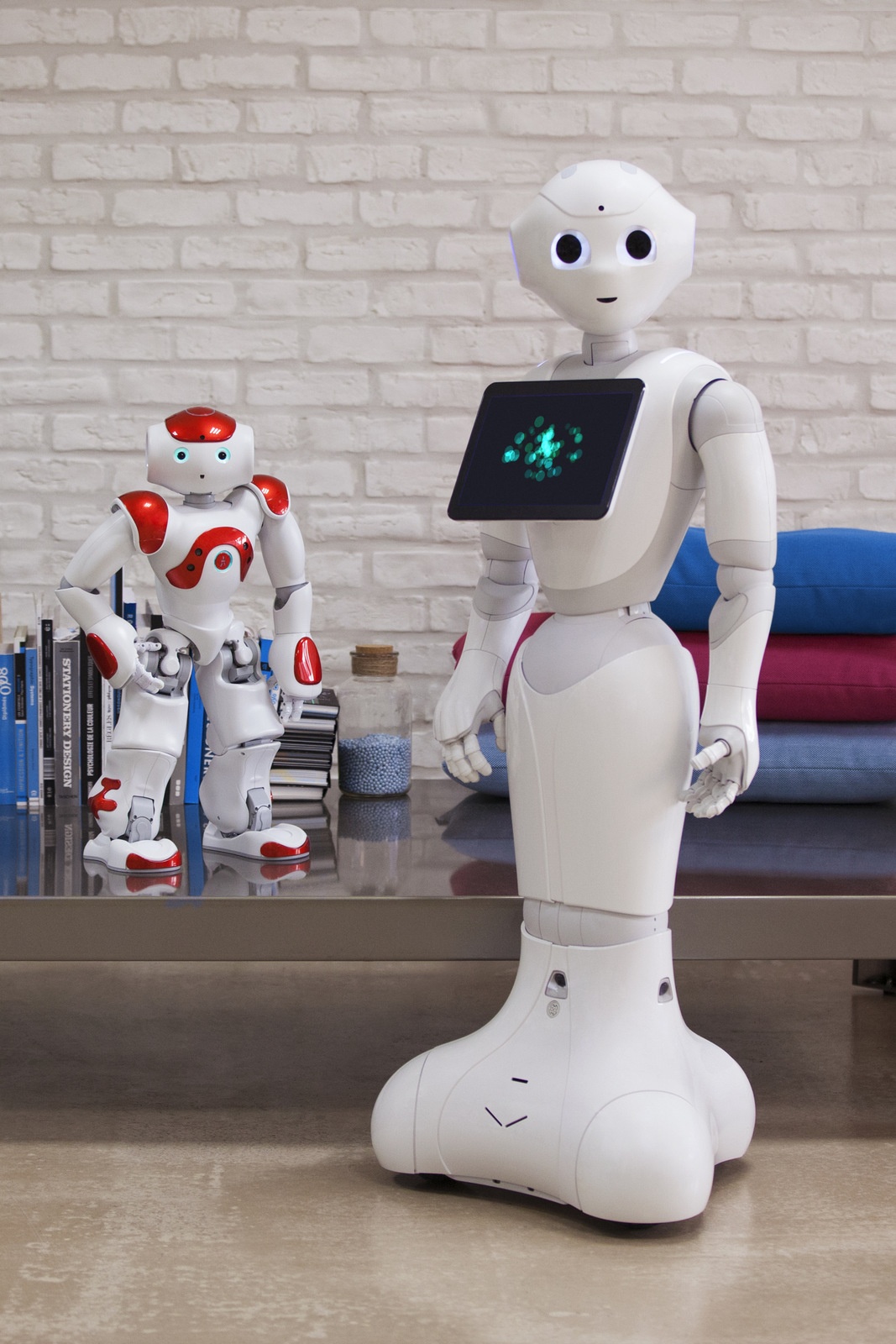
ipynao

- JupyterLab extension for Nao
- NAOqi framework
- Supports Python
Nao
Nao
Robot Operating System (ROS)
- Middleware for robotics applications
- Supports various hardware and software components
- Community-driven with extensive libraries

Jupyter-ROS
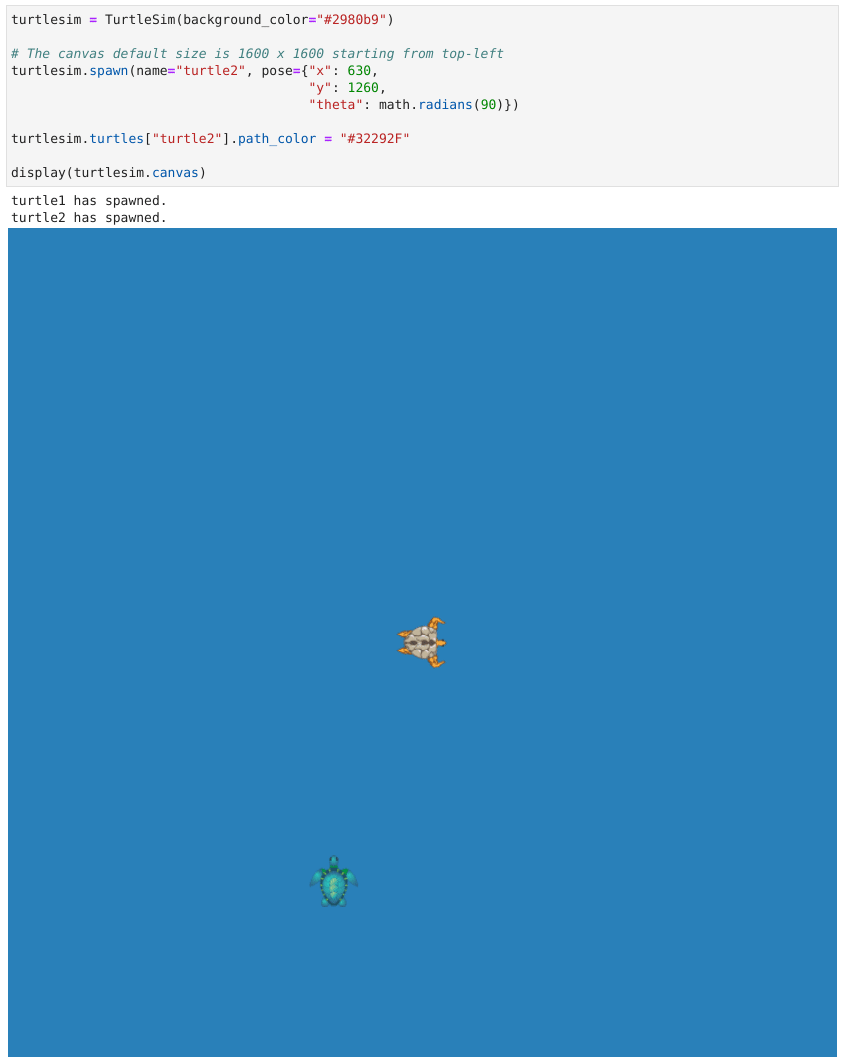
- Widget library for ROS
- ROS 1 and ROS 2
- Supports publishers, services, actions
- github.com/RoboStack/jupyter-ros
- Authors:
- Wolf Vollprecht
- Carlos Herrero
URDF
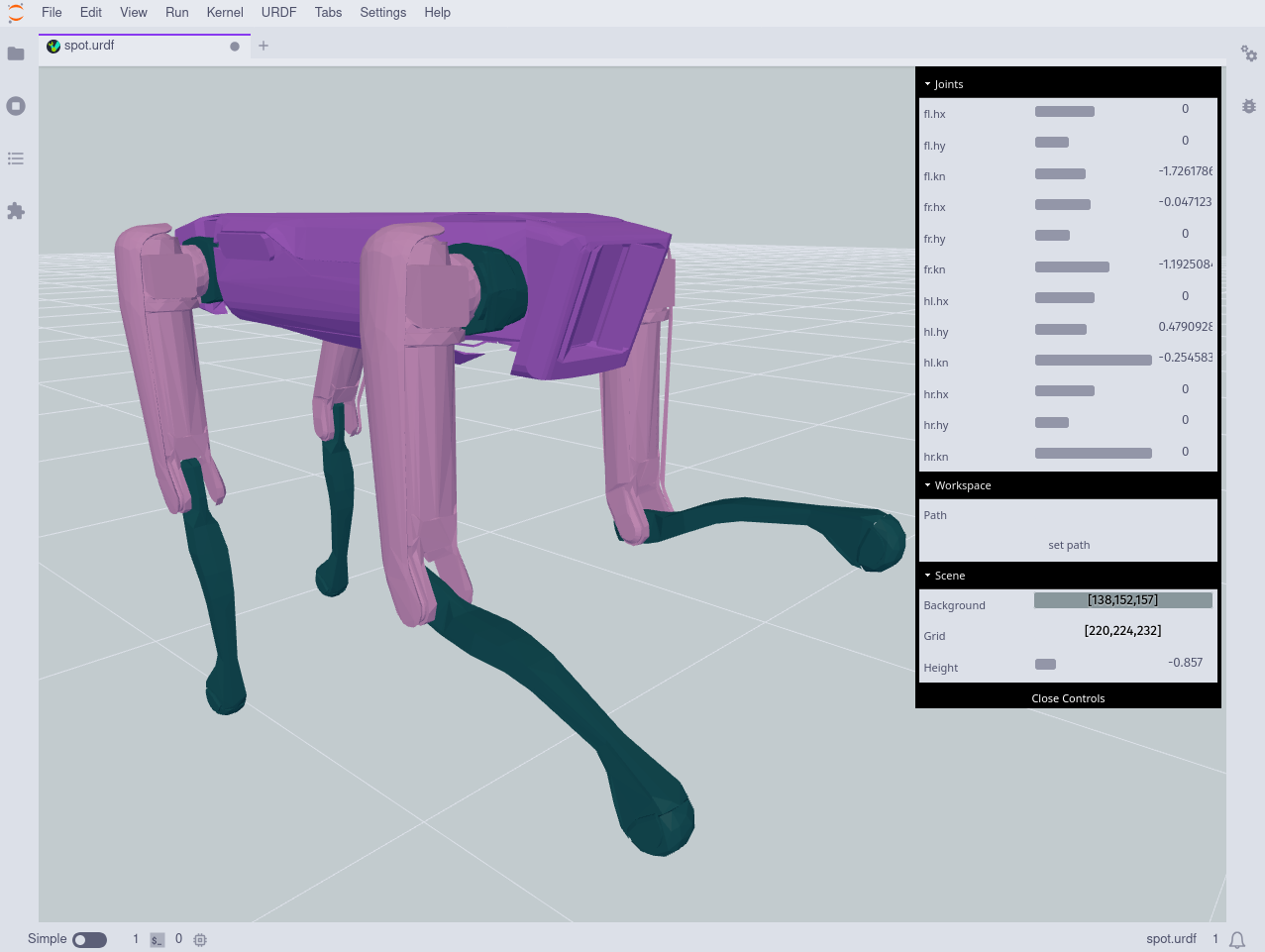
- Unified Robot Description Format
- Standard format for representing robot models
- Used in ROS for simulation and visualization
JupyterLab-URDF
ROS2WASM
- ROS 2 in WebAssembly
- Custom middleware implementation
- Enables running ROS 2 nodes in the browser
- Contributors:
- Tobias Fischer
- Nicolas Marticorena Vidal
